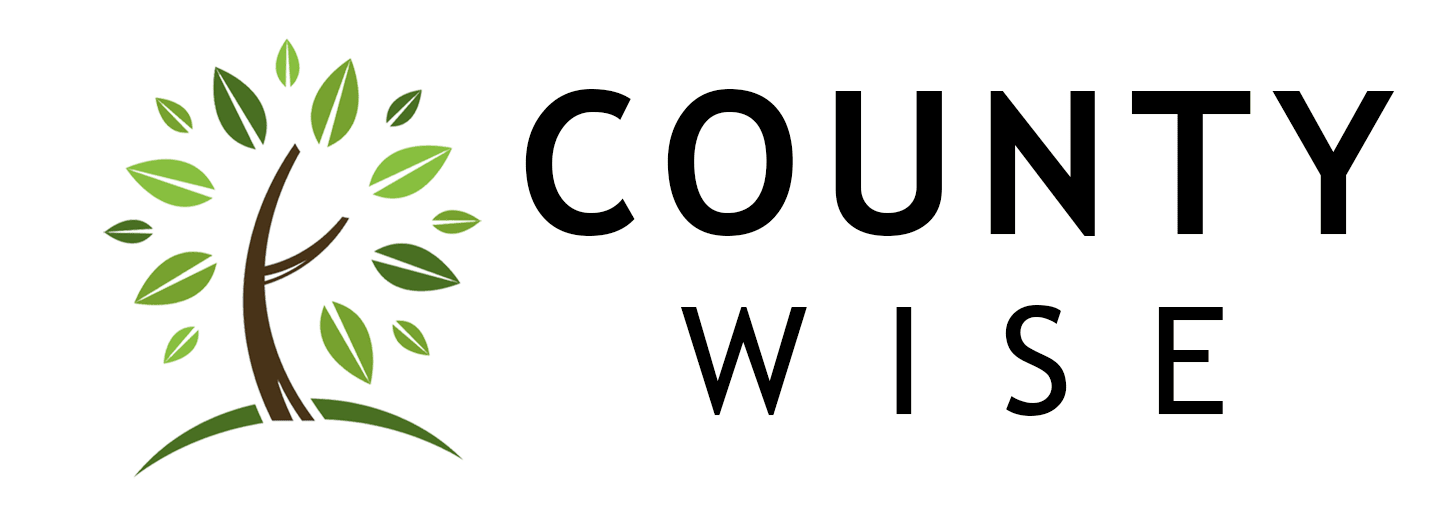Proper Deal Etiquette During Virus Crisis (HA 1215)
Proper Deal Etiquette During Virus Crisis (HA 1215)
Transcript:
Steven Butala:
Steve and Jill here.
Jill DeWit:
Hello.
Steven Butala:
Welcome to the House Academy show, entertaining real estate investment talk. I’m Steven Jack Butala.
Jill DeWit:
And I’m Jill DeWitt, broadcasting from sunny Southern California.
Steven Butala:
Today Jill and I talk about commercial real estate and how it will be changed forever because of this virus.
Jill DeWit:
It’s amazing. It really is. I’m thinking about all those … We talked about a little bit at the end of the show yesterday, you shared about, “Hey, you sent everybody home. Now they’re thriving. Do we need to bring him back in and have that overhead and the expense and the rent and the water delivery and the cleaning staff.” There’s a lot. The power bill. I mean, think about all this.
Steven Butala:
People my age are really used to going to the stores to get stuff. Younger people not so much. And it’s just a habit. Even though it doesn’t make sense. It makes sense to have everything delivered. Now I’m forced to have everything delivered. Do you think I’m going to go back to the stores after I’ve realized how easy this is? No way.
Jill DeWit:
Right.
Steven Butala:
Before we get into it, let’s take a question posted by one of our members on the houseacademy.com online community. It’s free.
Jill DeWit:
Levi wrote, “Hey there. Random question, but it relates to buying through escrow, either land or homes. I haven’t purchased a home for my family yet, so I will qualify for first time home buyer incentives when I buy. If I purchase a piece of land through escrow prior to actually buying a home through escrow, will that affect my first time home buyer incentive? I’m just wondering if utilizing escrow for a piece of land will affect buying a home for the first time in any way. I’m thinking the mortgage side of purchasing home is what affects the first time home buyers discounts, not the escrow process. Any feedback helps. Thanks.”
Steven Butala:
Yes. You are correct, Levi. You answered your own question. It has nothing to do with escrow and everything to do with lender. Speaking of lenders, what’s going to happen to lenders?
Jill DeWit:
By the way, come on. Let’s just backup. This is all just a made up thing anyway to try and get someone to buy a home for the first time.
Steven Butala:
I mean, maybe it’s like a quarter point off.
Jill DeWit:
It’s not like it’s a federal thing. Is it?
Steven Butala:
Yeah, it’s a federal thing.
Jill DeWit:
It is? Okay. Well, I’m eating my words.
Steven Butala:
I think it’s actually a Freddie Mae Fannie Mac thing. You know what? I should stop right there because I don’t know.
Jill DeWit:
Only if you finance through that.
Steven Butala:
Yeah, but that’s mortgage insurance. So Freddie Mac and Fannie Mac mortgage insurers. You know what? I don’t know what the program is. I know this. In some way, the loan’s cheaper, whether it might be in the form of putting less down, less down payment or the interest rate’s less. It’s one of those two things. Or both. Like I know a VA loan, a veteran, is zero. You can get a 0% down. Why would you want to do that? I don’t know. And Levi, why would you want a mortgage?
Jill DeWit:
Yeah. Let’s talk for a moment, Levi. This is the bigger question. Okay. Let’s just throw whole thing out. Let’s think about this for a moment. Why don’t we save up and pay cash for something or just rent and you could rent for a long time and guess what? When crazy things happen, like right now, and the $400,000 house is now going to about to be a $200,000 house and you paid $400,000, do you really want to be going, “Great. Well, this is now our forever home. Congratulations.” Or, “Hey, thank goodness. Now we can rent something cheaper. Our lease is up in three months? Okay, we’re moving to something cheaper.”
Steven Butala:
Or save up to pay cash for a house and then it doesn’t matter. You paid $400,000 cash for a house, it’s now currently worth 200 … And this is going to happen. These aren’t made up numbers. It happened the last recession. “Yeah, I’ll just keep my house because it’s going to come back.” And it will come back.
Jill DeWit:
It will. But do you want to out that loan?
Steven Butala:
But do you want to pay interest in a payment when potentially your job’s in jeopardy? No. Jill’s exactly right. Why do you want a mortgage? I don’t think there’s any time you should actually really have a mortgage unless you’re in a scenario like … I don’t know. It’s a farm and your income comes from making food and I don’t know. And you live there too, so maybe that … But now it’s just not … It’s not a house in the suburbs.
Jill DeWit:
Honestly, I just think that it’s just got to be a decision that you’re going to stay there anyway. It’s like your forever home. I’m not kidding. You have 3 million in the bank and you’re going to pop down $500,000 on your forever home. I’m okay with that. Seriously. Because you’re paying cash for it. That’s not a deposit. You’re paying cash for it. It’s done. We’ve made that decision. I’ve got two and a half million dollars right now. I’m going to make more anyway, no matter what. Like Warren Buffett. We all know Warren Buffett can afford a nicer, newer, fancier, bigger home. But no, he made that decision a long time ago. He’s staying in his house.
Steven Butala:
Right. Absolutely, Jill. And a more likely scenario is you’re a young couple, you’re just starting out. You’re paying a rent. Maybe you have some kids and you’ve got a two bedroom apartment somewhere. What you should be doing is taking 20 or 30% of your money that’s leftover and putting it into a bank account somewhere so that you can buy a house for cash and then plan it all out.
Jill DeWit:
Like in 10 years.
Steven Butala:
Yeah, like 10 years. 10 years is great. “Oh Steve. But I could buy a house right now-“
Jill DeWit:
No, but equity.
Steven Butala:
No. Take a look at the interest payment the first 10 years of a mortgage and how much equity you actually pay down. It’s not a straight line scenario. It’s not like month one, my payment’s $1000 bucks, $200 goes to equity, $800 goes to interest and then I’ll be done. No, it goes like this. It’s all interest.
Jill DeWit:
That’s a valid point.
Steven Butala:
It’s all interest in the first part of the-
Jill DeWit:
You’re right. So instead of doing that … This is a very good one.
Steven Butala:
I wrote a technical paper on this.
Jill DeWit:
This is so good. But just let me, I want to finish this for a second. Because it’s really easy to look at it that way. Instead of getting a house right now today with a 30, even a 15 year mortgage, let’s spend because the first, what? How much? Third to a half of that time is interest only, right? Let’s not pay that interest and just think like, “All right, I’m going to put 10, 15 years of money aside to pay cash at that point for something.
Steven Butala:
Guarantee you’ll come out ahead.
Jill DeWit:
That makes up so much more sense.
Steven Butala:
Guarantee it. Here’s why. In 15 years, your life’s going to be totally different. You’re not going to be in that house. Maybe a worldwide virus happens. Oh, that could never happen.
Jill DeWit:
Maybe 20 kids happen.
Steven Butala:
What do you mean worldwide virus? That’s ridiculous.
Jill DeWit:
Yeah, that would never happen. Shut the whole world down? Oh, good luck.
Steven Butala:
What do you mean we’re all going to be working on our computers in our jobs [crosstalk 00:06:47]?
Jill DeWit:
They closed the beaches? Are you nuts? That’s insane.
Steven Butala:
What do you mean there’s no such thing as a store anymore? You just buy everything online and they send it to you.
Jill DeWit:
What? That’s ridiculous. You mean you’re telling me I can’t just walk down the street to my bar? Good luck. Disneyland closed? Never. Yep.
Steven Butala:
In the state of California, if someone told me you will be able to order a drink from your favorite bar, walk up to it, bring your mug. They pour it for you, you pay them, and then you walk outside on the street and it’s fine-
Jill DeWit:
And walk home?
Steven Butala:
I would have said when pigs fly. Guess what Jill and I did last night?
Jill DeWit:
Yeah. It’s hilarious.
Steven Butala:
Today’s topic, which this rant you just worked your way through, thank you, ties into this topic. Commercial real estate will be changed forever. This is why you’re listening.
Steven Butala:
Do we need strip malls? Not anymore. We never really … Well, we kind of did before.
Jill DeWit:
Yeah.
Steven Butala:
We needed to go to a 7/11 if we wanted a Coke. Now we just order one online and they’d bring it to you. Do we need to go to an office? Nope. Do we need big buildings to manufacture stuff?
Jill DeWit:
Yes.
Steven Butala:
Do we?
Jill DeWit:
To manufacture things?
Steven Butala:
I don’t know.
Jill DeWit:
I can’t build a car in my living … Well, I could build a car in my living room, but I couldn’t build 100.
Steven Butala:
Where did Tesla just build their new factory?
Jill DeWit:
Wasn’t it Mexico? Was it here?
Steven Butala:
The most rural area of Nevada you can possibly imagine . Rural Nevada.
Jill DeWit:
Get to know lack of current events Jill. I didn’t know that.
Steven Butala:
Ultra, ultra cheap real estate. Why? Because the jobs are there. They’re incredibly automated, first of all. So it’s the most up to date manufacturing facility of its time. I think it’s like now two or three or five years old. So as a production efficiency automation scenario, they don’t need a lot of people that work there. So the people that do work there, they move there. And they’re usually high paid workers that they’re not drilling a hole in the side of the car, like they were in 1950s. Machines are doing that. What they have there now are very highly trained and command high salary computer people to make sure that these machines don’t break down.
Jill DeWit:
Engineers.
Steven Butala:
Yeah.
Jill DeWit:
Right.
Steven Butala:
Mechanical engineers. So it’s all changing. So do we need factories in the middle of town where all the people live? Nope.
Jill DeWit:
This is going to be so interesting.
Steven Butala:
So what commercial real estate do we really need? I can’t think of any.
Jill DeWit:
A hotel?
Steven Butala:
A hotel? That’s a great example. A hotel. [crosstalk 00:09:31] In a tourist attraction because the pyramids aren’t going anywhere or the ocean is not going anywhere and you need a place to go to vacation. That’s a great point.
Jill DeWit:
Restaurants.
Steven Butala:
Do we need to go to restaurants?
Jill DeWit:
I don’t need to go to a restaurant, but if this is extended another couple months, something’s going to happen in our house. Just kidding. No, but I need to get out. I mean, I like to go out and I know you do too. But it’s option. It’s optional.
Steven Butala:
Well, Jill’s right. There is a need for restaurants. Do we need as many as we have now? No, the whole world is getting by without going to a restaurant right now. Do you think that’s going to permanently change everybody’s behavior? I think so. I will tell you personally, I looked at my personal bank account over the last three weeks and I’m like, “We’re not spending any money anymore. We don’t go out to eat.”
Jill DeWit:
Yeah, it’s interesting. It’s good.
Steven Butala:
We don’t go out on the weekend and buy everybody drinks, a couple of rounds of drinks, which is not the cheapest thing in the world where we live. So you don’t think that’s going to change people’s behavior permanently? Let’s say people stop going to restaurants 20% of the time after this is over. That’s a massive shift in commercial real estate.
Jill DeWit:
Right.
Steven Butala:
Or maybe people who own restaurants, who are starting restaurants are going to say, “Hey, remember what happened in 2020? Well, I’m not going to get caught with my pants down again like that. If I need this piece of real estate, I’m going to open a restaurant and then we’re going to build this little thing over here that just becomes a takeout in case it happens again.”
Jill DeWit:
We’ll be ready for it. That’s true. Well, it’s interesting. We were involved in an, we’ll call it an experiment, the other night. We talked about a little bit before that a friend of ours for her birthday said, “Let’s do a Zoom thing.” And we started off all drinking wine and at the end we’re doing shots all in the comfort of our own homes, in our living rooms and having fun and laughing. And we were actually shockingly, I think, getting the same experience with our friends as being out in a bar. I couldn’t hug them, but we were laughing, cracking jokes just as we would. And it’s so interesting.
Steven Butala:
I had about 80% as much fun as we would’ve had an in person and that was good enough.
Jill DeWit:
And you know what? You had 80% as much fun. Right? And you had 95% more money leftover because think about overspending.
Steven Butala:
That’s right.
Jill DeWit:
So you know what? I’m not kidding. I’m going to open my own virtual bar.
Steven Butala:
We should start tonight.
Jill DeWit:
I think that would be fun. I’ll put it in our local Facebook groups and see who shows up.
Steven Butala:
It’s a brilliant idea.
Jill DeWit:
This would be so fun.
Steven Butala:
Costs nothing.
Jill DeWit:
Yep. Local Facebook. Watch me.
Steven Butala:
Maybe donate like a dollar or donate something, just so the riff raff doesn’t show up. Can’t be free. Maybe it’s-
Jill DeWit:
Why can’t it be free?
Steven Butala:
Donate $5. We’ll set up a Venmo account for like the fire department.
Jill DeWit:
Oh, okay. I’m here with you. So how about … Excuse us while we have a brainstorm during the show. What? Okay. I like this. So wait a minute. A Zoom event and we’re collecting-
Steven Butala:
It’s a charitable event.
Jill DeWit:
It’s a charitable event.
Steven Butala:
100%, all of it goes to a-
Jill DeWit:
We’ve got to pick something.
Steven Butala:
The medical center close by here.
Jill DeWit:
Okay. All right. To a local medical facility. We’ll pick that out.
Steven Butala:
We’ll find a nonprofit one or whoever needs it.
Jill DeWit:
Yeah.
Steven Butala:
I mean, maybe even-
Jill DeWit:
What about homeless?
Steven Butala:
I just donated $100 to, somebody sent me … My favorite bar, they’re all out of work. So they said “Hey.”
Jill DeWit:
Oh, the restaurant thing? Oh good. I’m glad you did that. Thank you.
Steven Butala:
So maybe it’s that.
Jill DeWit:
My favorite bar? Oh, that’s not crazy because we’re doing a virtual bar.
Steven Butala:
Because it’ll all be local here.
Jill DeWit:
Yeah, and it’ll help out our local people.
Steven Butala:
So whatever the local thing now needs some help, we’ll donate to that.
Jill DeWit:
Hey, whatever it is, you should do it too. Think about it.
Steven Butala:
Yeah.
Jill DeWit:
This is a time, come on, we all need to give back to and help everybody out. Thank you.
Jill DeWit:
Happy you could join us today. Every Monday, Wednesday and Friday, you can find us on the Land Academy show. Tuesdays and Thursdays, you can find us right here on the House Academy show.
Steven Butala:
Tomorrow the episode on the Land Academy show is called Jill’s way of working from home. You are not alone in your real estate ambition.
Steven Butala:
I’ll give you a sneak peek of what Jill’s going to say. It doesn’t involve sitting on my lap. We don’t work in the same space.
Jill DeWit:
That’d be hilarious.
Steven Butala:
We don’t have lunch together.
Jill DeWit:
Nope.
Steven Butala:
It’s very separate and quiet.
Jill DeWit:
It’s nice.
Steven Butala:
We Skype each other as if we could be in different countries.
Jill DeWit:
Oh, totally. Nevermind we’re only on different floors. It’s great. The House Academy show remains commercial free for you, our loyal listeners. So wherever you’re watching, wherever you’re listening, please subscribe and rate us there.
Jill DeWit:
We are Steve and Jill.
Steven Butala:
We are Steve and Jill. Information-
Jill DeWit:
And inspiration-
Steven Butala:
To buy undervalued property.














